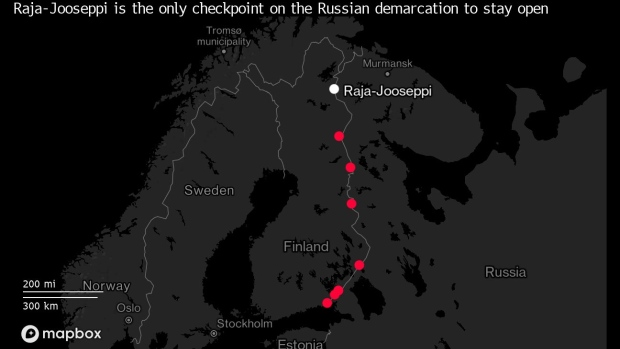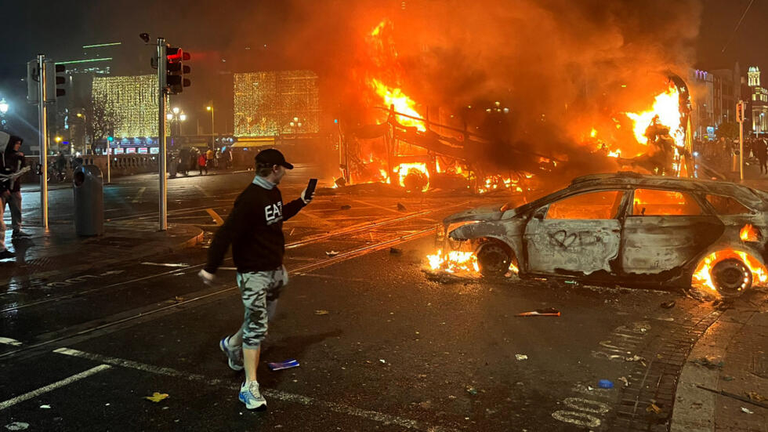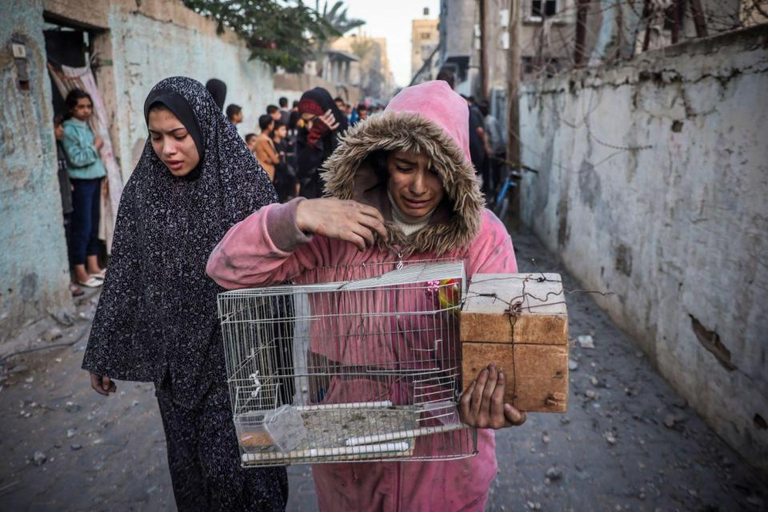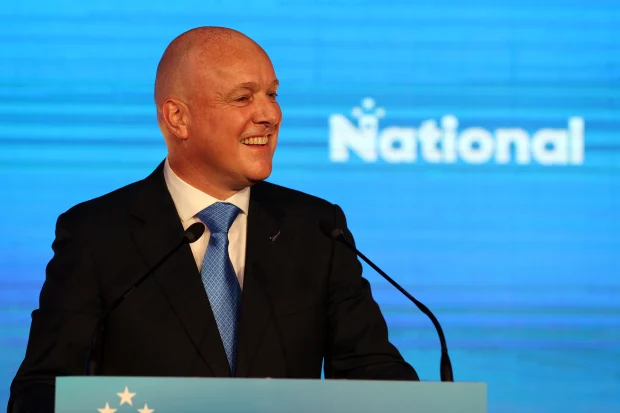
Russia's Migrant Wave Attack on Finland
Finland has announced that they'll be closing all but one of their eight border crossings with Russia following a recent spike in undocumented travelers crossing the border. The Finnish prime Minister announced that from today, only the northernmost crossing would stay open, with this following a period in which Finland and now Estonia have accused Russia of a hybrid attack operation by letting undocumented travelers come across the border regions. while normal asylum applications average between 0 and 10 per month that number spiked to 600 in November, despite previously collaborating on the management of asylum seekers and border control Finland and Russia have stopped communicating on the issue, and now Finland's border authorities are saying that people are turning up to border points on brand new bikes, which they say were provided by Russian authorities. Following the increase, Frontex, the EU's border agency, has sent 50 border guard staff to the region to provide support to the Finnish Border Agency. Now Finland considers Russia's actions as a retaliatory attack following the Finnish accession to NATO earlier this year, with Finland's president last month saying that we are constantly being reminded by Moscow that Finland has joined NATO. And to be fair, this wouldn't be the first time that this tactic has been employed by Russia, with asylum seekers being provided bikes to make Arctic border crossings into Norway and Finland in 2015 and 2016.

Rioters in Ireland
Police in Dublin have arrested 34 people following what they described as huge destruction by a riotous mob which saw rioters clash with police on Thursday night, where they set fire to buses, trams and police vehicles. The riots in the Irish capital developed out of an impromptu protest, which was held following a stabbing incident outside a school which left five people injured, including a five year old girl who remains in critical condition in hospital, as well as two other children. A man in his 50s who is reportedly a naturalised Irish citizen who lived in the country for 20 years, was detained. But as rumours began to spread about the identity of the alleged attacker, protesters gathered at the scene in Parnell Square before spiralling into riots that saw 13 shops looted, a tram and two buses set alight. 11 police vehicles damaged and an officer seriously injured. Irish Police Commissioner Drew Harris blamed the riots on a lunatic hooligan faction driven by a far right ideology, adding that what we saw last night was an extraordinary outbreak of violence. These are scenes that we haven't seen in decades. Irish Taoiseach Leo Varadkar called the stabbing incident a horrifying act of violence, and said that his thoughts were with those who were injured and those who risked their lives to save lives, adding that they're real Irish heroes, whatever their nationality. As for the riots that followed, Varadkar said that those involved brought shame on Dublin, brought shame on Ireland and brought shame on their families and themselves. Varadkar also said that the government would pass new laws in the coming weeks to enable the police to make better use of the CCTV evidence that they gathered yesterday, and said that they modernised laws against incitement to hatred and hatred in general.

Gaza Ceasefire
Next up, a temporary ceasefire has begun in Gaza today, which is the first significant break in violence in the 48 days of conflict. So far, no major bombings, artillery strikes or rocket attacks have been reported, though according to Reuters, both Israel and Hamas have accused each other of minor and sporadic violations, having begun at 7 a.m. local time, the ceasefire is meant to last for four days to allow for the release of a dozen hostages held by Palestinian militants and Palestinians imprisoned by Israel. It will also allow for desperately needed aid to enter the Gaza Strip, which has been devastated by well over a month of Israeli bombardment and siege and shortly after the truce began aid trucks began finally rolling in from Egypt. At the same time, the Israeli government has been dropping leaflets over the southern part of Gaza, issuing a warning to the many hundreds of thousands of displaced Palestinians that they should not use the cease fire to return to their homes in northern Gaza, which has borne the brunt of Israel's offensive so far. Now, this temporary ceasefire was agreed after weeks of indirect negotiations brokered by Qatar with Egyptian and US involvement. And while it has been a cause for optimism, both Hamas and Israel have stressed it's temporary nature.

New Government in New Zealand
Let's move to New Zealand, where, more than a month after their general election, the country has finally found a new government as the centre right National Party, which won the election, agreeing to form a coalition with the conservative Act party and the populist New Zealand First Party. Under the agreement, National Party leader Christopher Luxon will become prime minister, with the Deputy Prime Minister role first going for New Zealand First leader Winston Peters and then transferring to the Act leader David Seymour halfway through the government's term. The coalition agreement also contains a whole load of commitments, with some notable ones including the repealing of a ban on offshore oil and gas exploration, rolling back the use of the Maori language, narrowing the remit of the reserve Bank of New Zealand, cutting income tax, reviewing firearms laws and more. Ultimately, this new government will be a real change of direction for New Zealand which has been governed by the centre left Labour Party since 2017, first under Jacinda Ardern and then under Chris Hipkins following Ardern's resignation earlier this year. The incoming Prime Minister, Christopher Luxon, called the coalition agreement a common sense plan that would make our country even better. But outgoing Prime Minister Chris Hipkins said that the policies would reverse decades of progress on Maori issues.